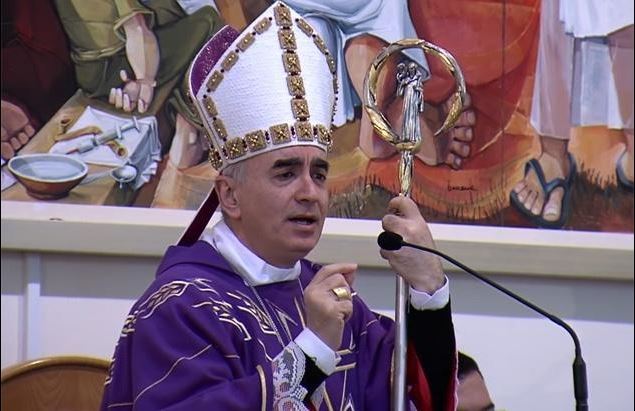«Not a green manual, but a real encyclical that inextricably binds the issues of the environment, nature and creation to the cry of the poor and the land itself. It is Abel’s blood that shouts in the presence of God and asks us what we are doing ». Monsignor Antonio Staglianò, president of the Pontifical Academy of Theology explains the objectives of the international seminar that, ten years after the Laudato Si ‘, takes stock of “Created, Nature, Environment, for a world of peace”.
From 11 to 12 September I gathered to the Casina Pius IV, in the Vatican. What will you discuss on?
«The meeting aims to develop not only the themes, but the contemplative gaze with which Laudato si ‘, but also Laudate Deum face the question of a full ecology. The goal is to promote a conversion from the arrogance of reason which, starting from the Enlightenment, has transformed the creation into nature and therefore on the subject to be exploited “.
What is the approach?
“We start from full ecology that unites the care of nature with social justice, with economy, culture and daily life. For this reason we have called, from all over the world, experts in economics and social justice. And then we will talk about the elderly, of children, of young generations. We will seek a Christian answer to environmental issues. These are not easy answers, but rooted in a profound and joyful vision of reality, capturing history as a place of the call of God and the creation as a gift. The theme is inevitably theological: recognizing the creator in the god fi Jesus allows to have a joyful optimism to change first and consequently and, consequently, reality and the world. Because the world does not go to the barbarism of social inequalities that inevitably lead to wars ».
Is there a relationship between inequalities, wars and the environment?
“Certain. The wars, caused by the concentration of resources in the hands of few who exploit them, are one of the great causes of the environmental disasters and the destruction of the common house. It is necessary to make a profound reflection on how to act with justice, by administrators and non -predators of the resources of the earth and the world. If we are faithful administrators of a world that has been entrusted to us for a short time, but with an eternal responsibility, we earn, precisely eternity “.
Pope Leone seems to have taken very much to heart the theme of full ecology.
«Yes, it is very careful. He sensed that the great legacy of the magisterium of Pope Francis lies in this great theme. He certainly intends to recover the tradition of the social doctrine of the Church by connecting to the source of this doctrine which is Leo XIII. I believe that its originality will be in imposing this social magisterium in a more explicitly theological way. We are interested in creation not to propose green choices to those who know more than us, but to develop the Christian vision of life that we draw from the revelation of God in Jesus. If we think of Leo’s first words to his election: “Peace is with you”, a disarmament and disarming peace, we are faced with a great ecological affirmation because the peace that Jesus has not brought to the world is not belligerent, but a total conversion of the spirit. Human, of the human mind, of human reason that looks to reality by contemplating the work of God, which is a continuous creation ».
Where do you start for this conversion?
«From restoring their intrinsic value to things. Today there is a disconnection. I think of the song by Battiato Magic Shop: “The sickle no longer makes you think of wheat, the wheat instead makes you think of money”. Here we have to go back to giving things their value and not to exploit them instrumentally ».


